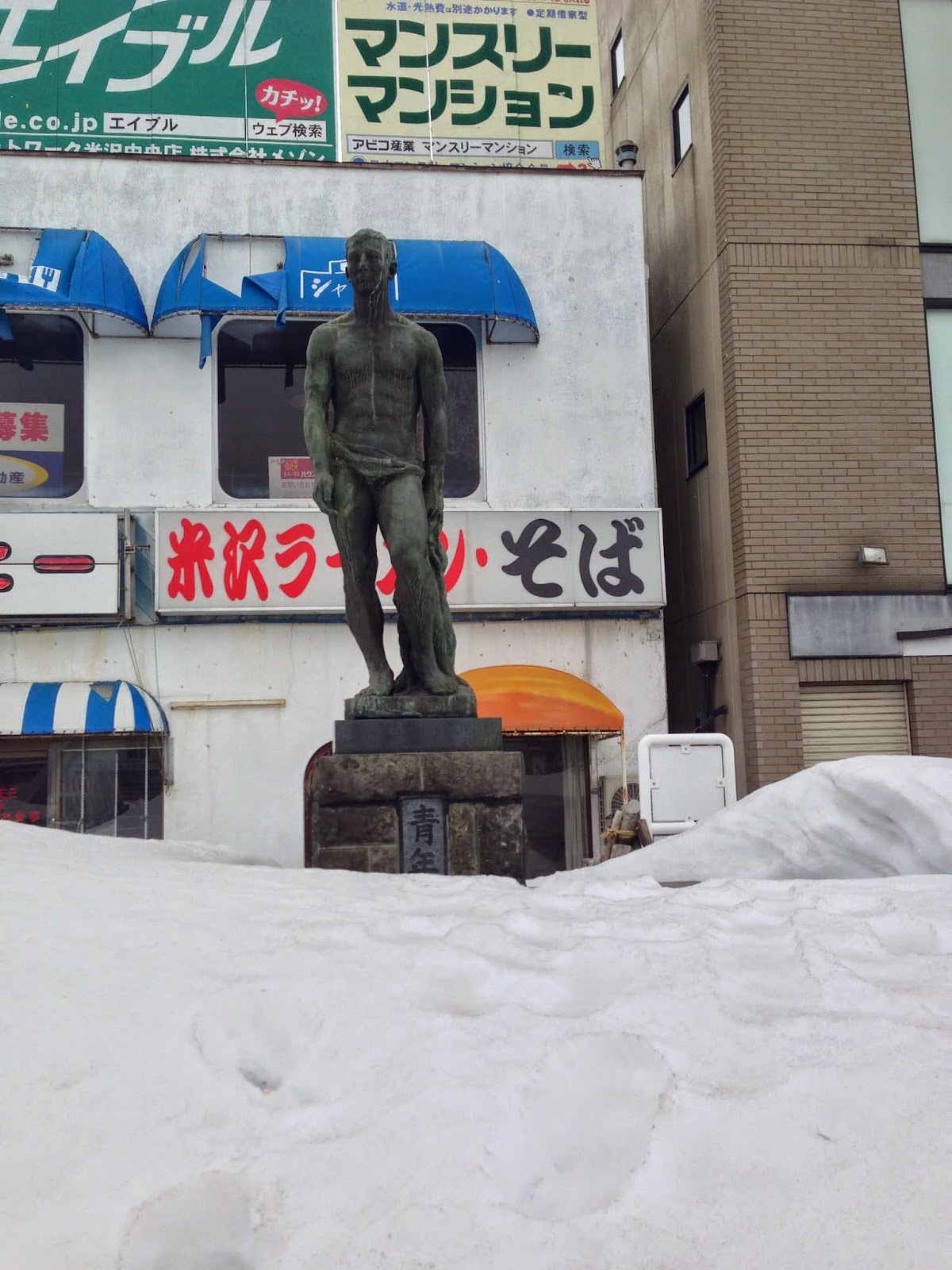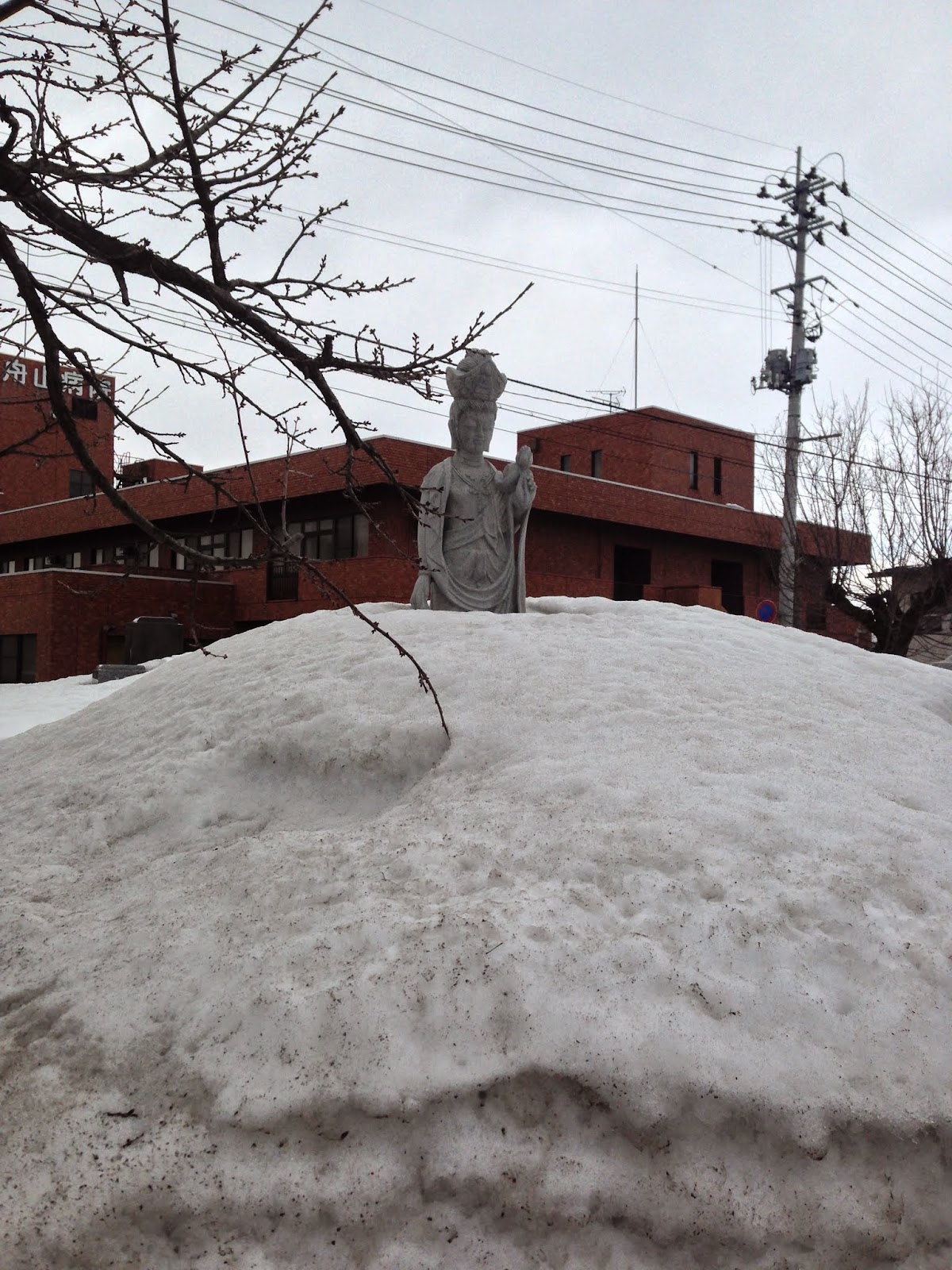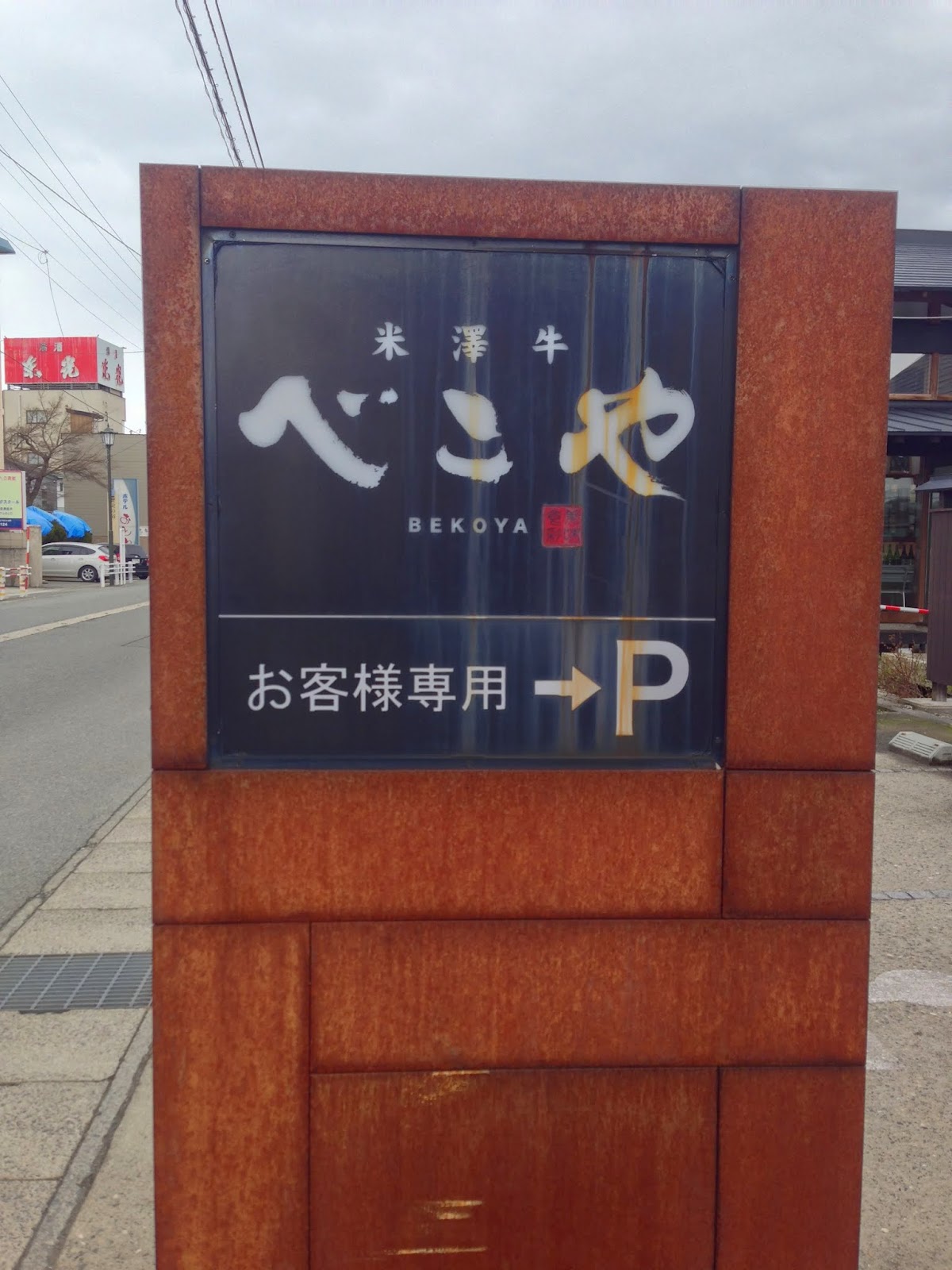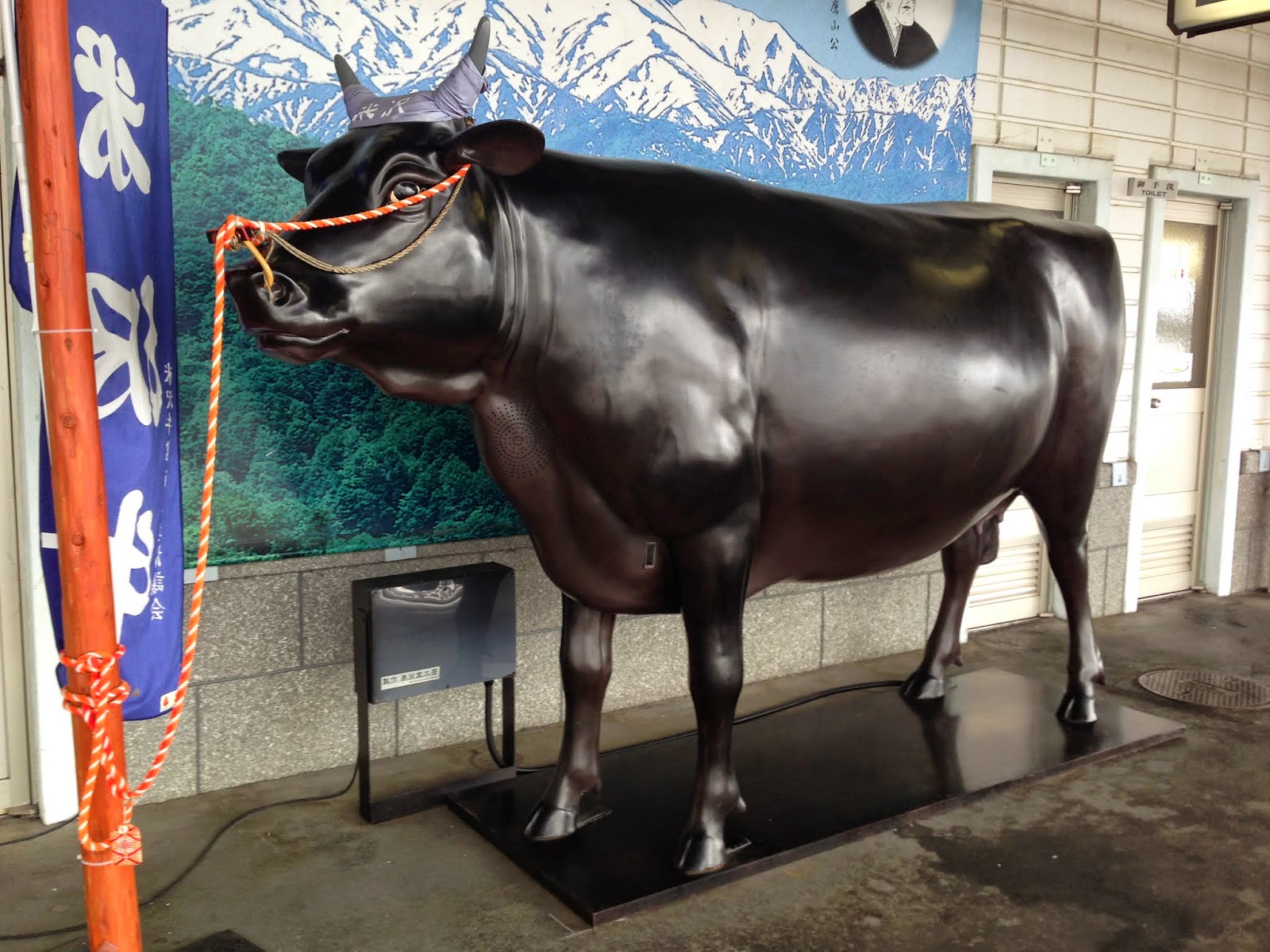I had an hour at Yonezawa. JR makes more money from the people who catch Shinkansen, so the train schedule is designed to maximize connections and convenience for the Shinkansen traveller. It's a pity it wasn't two hours in someway as Yonezawa seems like it has places of interest to sightseers.
Yonezawa is mostly famous for its beef, but it also caught my attention when I read Isabelle Bird's
Unbeaten Tracks in Japan.
The plain of Yonezawa, with the prosperous town of Yonezawa in the south, and the frequented watering-place of Akayu in the north, is a perfect garden of Eden, "tilled with a pencil instead of a plough," growing in rich profusion rice, cotton, maize, tobacco, hemp, indigo, beans, egg-plants, walnuts, melons, cucumbers, persimmons, apricots, pomegranates; a smiling and plenteous land, an Asiatic Arcadia, prosperous and independent, all its bounteous acres belonging to those who cultivate them, who live under their vines, figs, and pomegranates, free from oppression—a remarkable spectacle under an Asiatic despotism. ..
It is an enchanting region of beauty, industry, and comfort, mountain girdled, and watered by the bright Matsuka. Everywhere there are prosperous and beautiful farming villages, with large houses with carved beams and ponderous tiled roofs, each standing in its own grounds, buried among persimmons and pomegranates, with flower-gardens under trellised vines, and privacy secured by high, closely-clipped screens of pomegranate and cryptomeria.
 |
The snow was too high for me to read the sign
explaining the meaning of this statue outside |
 |
| JR Yonezawa |
 |
A statue of "A Young Man".
If there was more to the story than this,
it was covered by the snow. |
 |
| A temple near the station |
 |
| Not much ohaka maeri (grave visitation) possible here. |
 |
Ohigan - the spring equinox grave visiting season is in a couple of weeks.
There'll need to be some serious snow shoveling before then! |
 |
| A rather forlorn looking doll. |
 |
| Waist deep in snow |
 |
A sign telling the driver that the car has been parked
in a way that is bothersome to others. |
 |
Bego ya - a beef restaurant.
bego / beko is dialect for cow in parts of Tohoku |
 |
| Decorative tiles on the footpath showing the local festivals |
 |
Just a reminder that Yonezawa is famed for beef!
A wagyu statue on the station platform. |
No comments:
Post a Comment